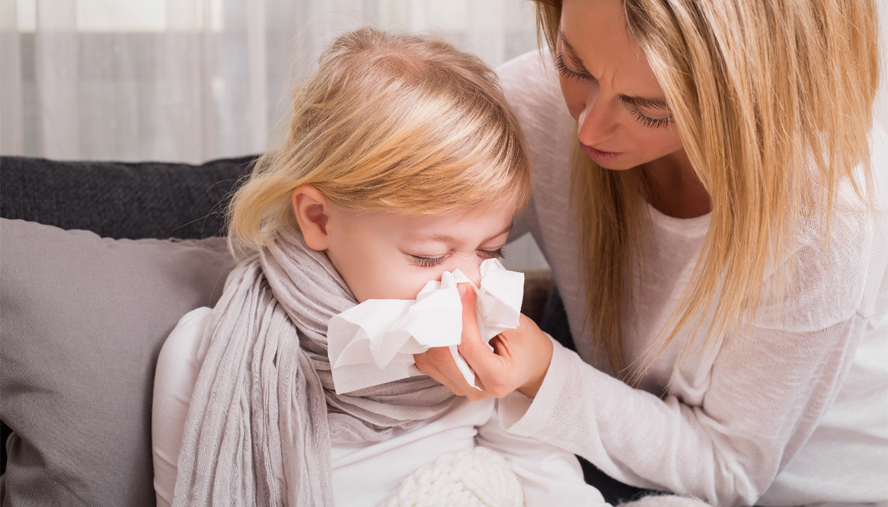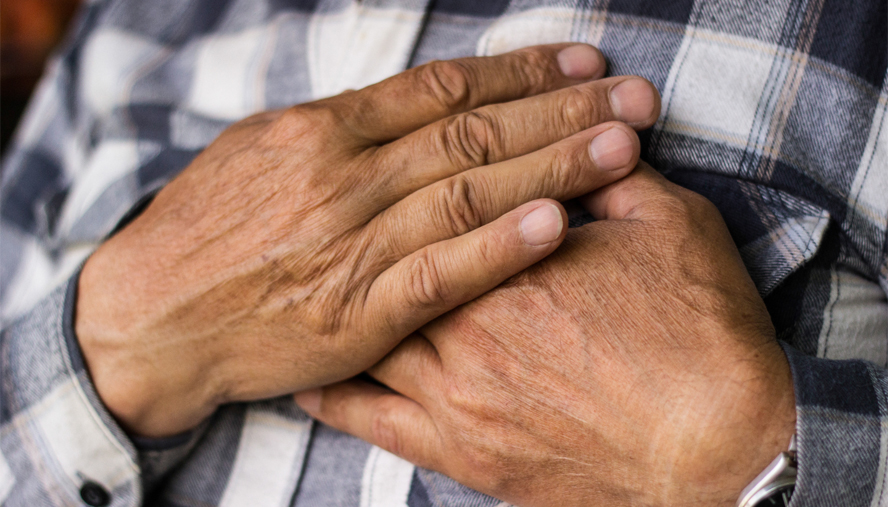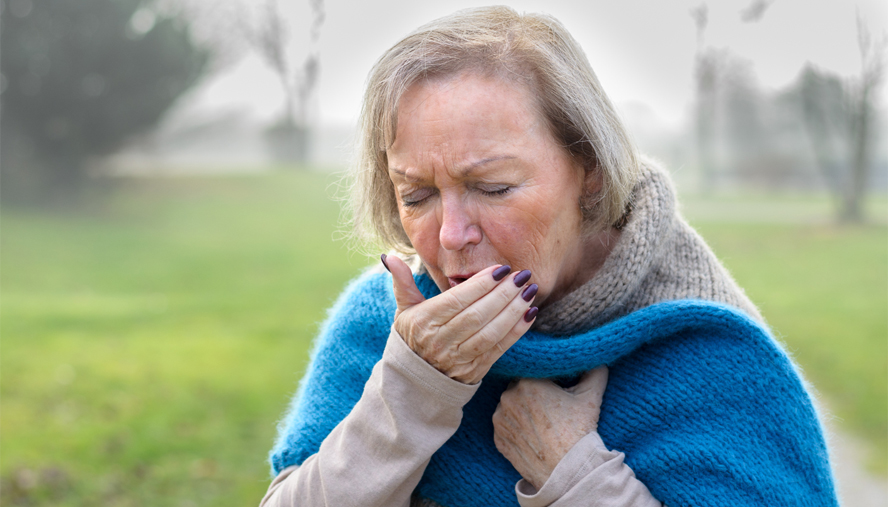Is My Cough Pneumonia?
Did you know that pneumonia is the leading cause of hospitalization for illness in adults? It is also the world’s leading cause of death in children under age five. Protect yourself by knowing the symptoms, risk factors and ways to prevent this common infection.

Who is considered high risk for developing pneumonia?
People at high risk have chronic health conditions such as heart or lung disease, diabetes, cystic fibrosis or immune suppression. Infants, the elderly and people with alcoholism are also at high risk.

What does pneumonia do to the lungs?
Pneumonia is an infection in one or both lungs. It causes inflammation in the lung’s air sacs (alveoli). The alveoli fill with fluid or pus, occasionally making it difficult to breathe.

How do you get pneumonia?
You develop pneumonia by inhaling infected particles or swallowing them into your lungs.

Are there different types of pneumonia?
Pneumonia can be bacterial, such as pneumococcal (the most common in adults); viral (the most common in children); mycoplasma, a type of bacterial pneumonia that is less severe and often called walking pneumonia; and fungal, which is from soil or bird droppings.

What are the symptoms of pneumonia?
Watch for a cough, chest pain, rapid breathing and shortness of breath. Other symptoms can include fever, chills, nasal congestion, sweats, headache, muscle aches, fatigue, weakness and green or rust-colored sputum.

What is sputum?
Sputum is a mixture of saliva and mucus that is coughed up from the respiratory tract.

How is pneumonia diagnosed?
A health care provider can diagnose pneumonia, and may use a physical exam and chest X-ray or other tests. See the doctor as soon as you notice symptoms.

When should I see a health care provider?
If you have symptoms of pneumonia, see a health care provider immediately. Early medical care is the key to successful treatment.

How is pneumonia treated?
Your provider will decide the best treatment for you, which may include a prescription for antibiotics or over-the-counter medicines, rest, fluids, oxygen and techniques to help bring up sputum.

How long does pneumonia last?
Pneumonia lasts about two weeks, unless complications occur. Pneumonia can be life-threatening and should be treated and monitored by your health care provider.

How can I avoid getting pneumonia?
Talk with your doctor about an annual flu vaccine, as well as the COVID and pneumococcal vaccine series. Manage chronic lung and sinus problems. Wash hands correctly and frequently. Avoid breathing in dust, pollution and smoke.

 You may also be interested in...
You may also be interested in...